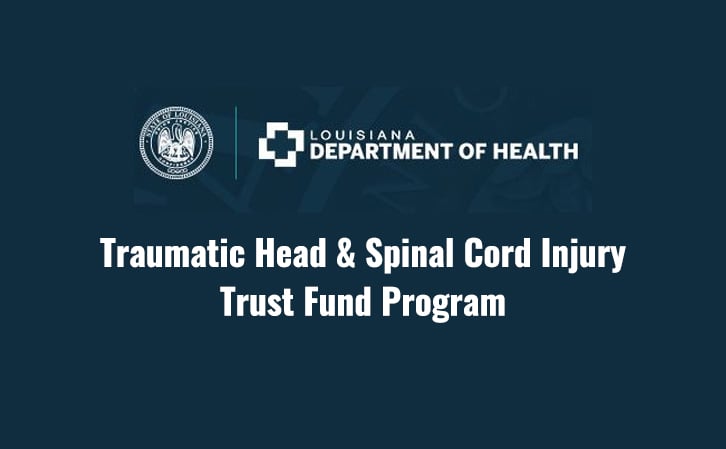The Louisiana Traumatic Head & Spinal Cord Injury Trust Fund Program

Throughout the country, there are programs created by state legislatures to provide funding for people with spinal cord injuries. In the state of Louisiana, they have a program called the Louisiana Traumatic Head and Spinal Cord Injury Trust Fund, or THSCI, which was created in 1993 by the Louisiana legislature. This trust fund gets its financial support from additional fees from a variety of motor vehicle violations in the state of Louisiana.

For quadriplegics and others with spinal cord injuries and brain injuries in this state, this program is hugely important. This program provides services to make sure their Participant Service Plan is met. It will pay for a wide variety of services, but most importantly, doctor visits. Quite often people do not have adequate insurance to pay for all of their medical needs.

The Louisiana Traumatic Head and Spinal Cord Injury Trust Fund will help people pay for things like medical evaluations and post-acute medical care, also known as outpatient therapy. The trust fund will also pay for rehabilitative therapies to help people with spinal cord injuries regain more function. It is now very popular for people with new spinal cord injuries to seek physical therapy outside the hospital, and this trust fund will help pay for it.
It will not however pay for any experimental rehabilitation. The therapy must be either a federal or state-approved program. And important to note - this trust fund will only pay for in-state services or programs; nothing out-of-state (even if it’s proven to be beneficial).
In addition, the Louisiana Traumatic Head and Spinal Cord Injury Fund will pay a variety of care once you are home. This trust fund will help pay for medications and medical supplies, Personal Care Attendant (PCA) services, durable medical equipment, vehicle accessibility modifications, and repairs, environmental accessibility modification, and assistive technology and equipment to help with daily living.
What is interesting about this program is that it is funded by a variety of road violations in Louisiana. People who are caught driving under the influence, arrested for reckless driving or speeding are all traffic violations that fund this program. To be eligible for this program, a person must be a resident of Louisiana. Most importantly, you must meet the definition of having a traumatic head or spinal cord injury. You also must be a resident of Louisiana at the time of your injury.

In addition, you will need to prove that you have utilized Medicare and Medicaid to the cover your services but were denied in order to be approved for this program. Proof of denial is requested when filling out the application. While this program may seem strict in its eligibility requirements, it is very generous to those accepted in the program. For example, individuals can receive up to $15,000 per year in assistance through the fund. The maximum amount of participants can receive in their lifetime is $50,000 in assistance.
Most importantly, it's important to remember this trust fund is designed to be a last resort for citizens of Louisiana. Once you are able to prove that no other program will cover your services, the Louisiana Traumatic Head and Spinal Cord Injury Trust Fund program will take over any needed services. With programs like this, people with spinal cord injuries have the opportunity to be truly resilient and independent when returning home.
- Learn more: Louisiana Traumatic Head and Spinal Cord Injury Trust Fund https://ldh.la.gov/index.cfm/page/126
Stay Updated on Advancements On Traumatic Brain &
Spinal Cord Injuries
About the Author




